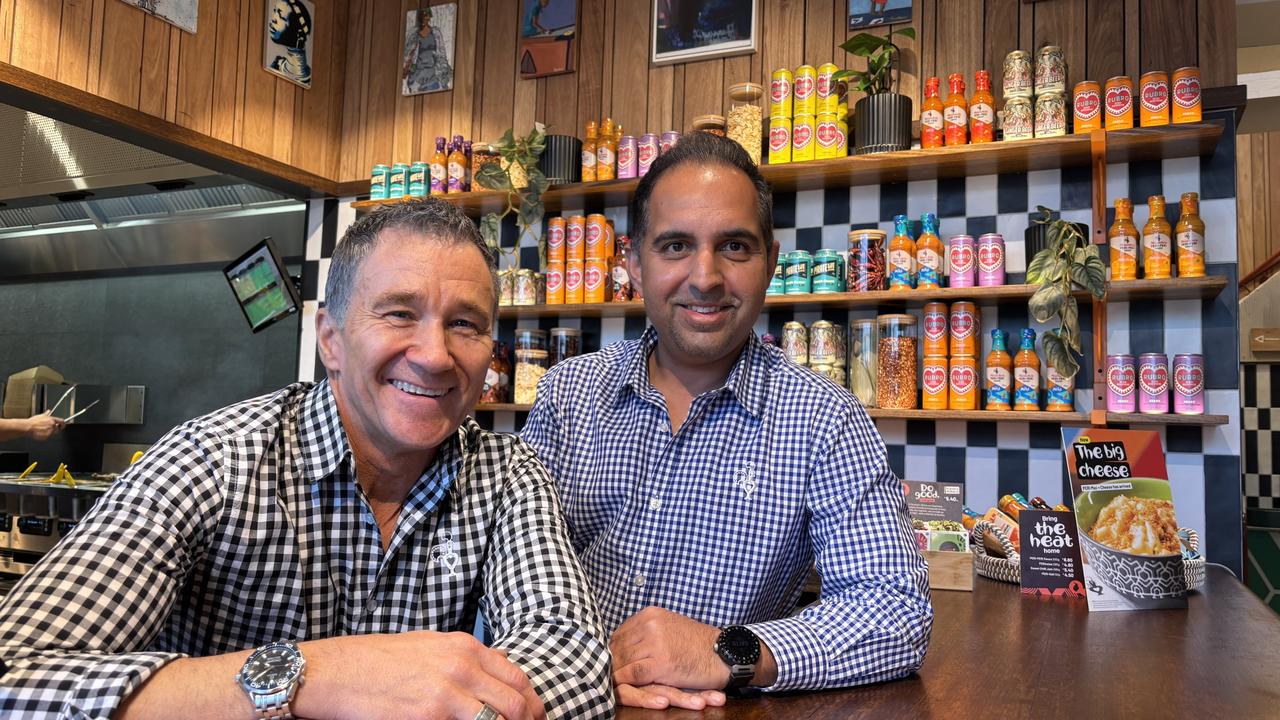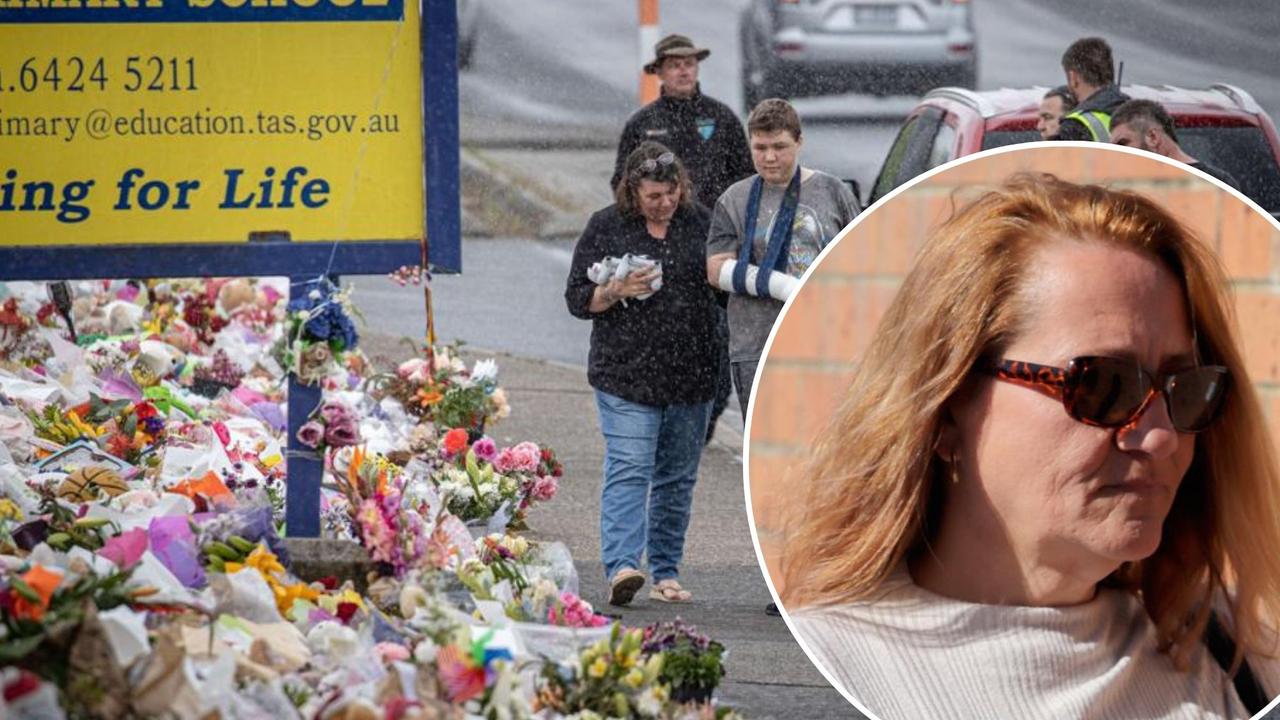Pay rise secured for thousands of workers but negotiations ongoing for ambos
The state government has struck a deal for a pay rise for more than 10,000 workers. But negotiations continue for some unions. See what’s been agreed to>
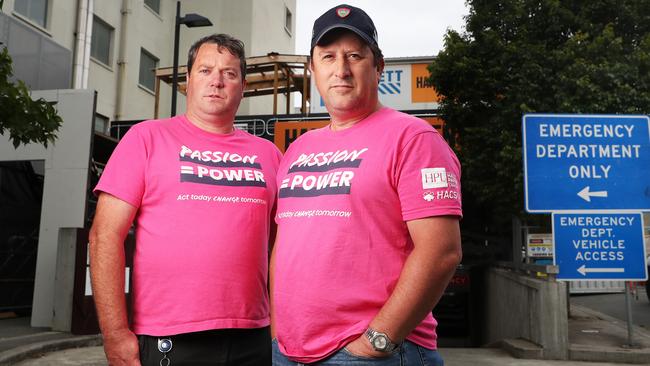
Tasmania
Don't miss out on the headlines from Tasmania. Followed categories will be added to My News.
Several public sector unions have agreed to a 9.5 per cent wage increase over three years for more than 10,500 state service workers, but teachers, paramedics and other workers are yet to strike a deal.
The offer includes a 3.5 per cent rise in the first year, a three per cent increase in the second year, and another three per cent rise in the third year.
State service employees will also recieve a cost of living payment of $1000, added to their base salary in the first year.
Some employees will receive an extra payment, including $500 into their base salary, a $1000 one-off payment in year one, $500 in year 2 and $500 in year three.
The agreement comes after months of negotiations.
Premier Jeremy Rockliff said the one off payments and percentage increases would mean the total increase over the life of the agreement would be between 10 and 17 per cent.
“This offer recognises the increased cost-of-living pressures on Tasmanian households, and the need for Tasmanian State Service employees to receive a fair and reasonable pay rise,” Mr Rockliff said.
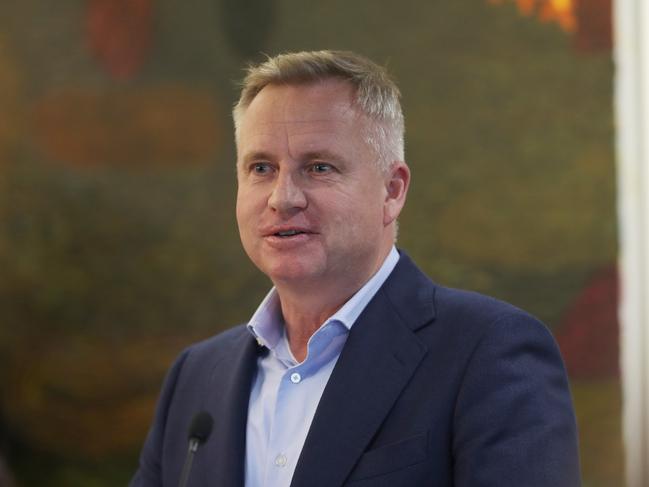
“Earlier in December, the firefighters and police agreements were agreed in-principle.”
Not everyone has signed up to the deal, the state government is still in negotiation with the Health and Community Services Union, which was provided an updated offer on Friday.
The union is expected to provide a response by the end of the year.
Health and Community Services Union assistance secretary said the timing of the government’s offer on Friday made it difficult to consult with members.
“It’s Christmas, this is the problem,” Mr Jacobson said.
“How foolish are the government to think the union can consult with their members over the Christmas period.”
Mr Jacobson said the government’s offer wasn’t up to scratch.
“The offer they have put to us has significant holes in it,” Mr Jacobson said.
The key issues, ramping, fatigue, meal breaks, issues around training and development, which is an issue for communications workers as well.
“It requires significantly more detail, it requires significantly more work.”
Mr Rockliff hoped the deal could be finalised soon.
“We remain committed to finalising an offer and reaching agreement for our hardworking paramedics, radiation therapists and teachers, to ensure they get a much-deserved pay rise,” Mr Rockliff said.
Ambulance officers up ante in battle for better pay deal
DEFIANT paramedics will decorate their ambulances for Christmas despite a ban from management — and say they’ll step up their industrial action after Christmas if a better pay offer is not presented.
The Health and Community Sector Union has written to the state service chief Jenny Gale formally rejecting the government’s latest deal.
Union chief Tim Jacobson said that among actions his members had agreed on were slapping union messaging on ambulances and workplaces, decorating ambulances in defiance of the ban and distributing union materials for patients and the public.
“Members have also indicated they will reconvene in the new year and will consider escalation of the industrial action,” Mr Jacobson wrote.
“HACSU is available to meet to discuss this matter.
“Should you be in a position to make a reasonable offer that would deliver a decent wage increase and improved conditions for Ambulance Tasmania workers, please get in touch.”
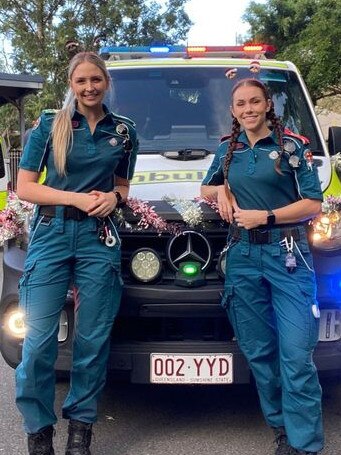
Premier Jeremy Rockliff said the government was open to further negotiations and industrial action would achieve little.
“I would like nothing more than to deliver for our health workers a fair and affordable pay rise before Christmas,” he said.
“What is important is that we do not go to strike action that does not help anyone. What will help people is to ensure that healthy unions engage in a very measured, measured sensible discussion, negotiate in good faith and recognise that the nine and a half per cent pay rise over three years is very fair.”
The state government noted that frontline ambulance staff had already been given a $2000 Covid payment and had been offered pay rises of 3.5 per cent in the first year of an agreement and 3 per cent in each of the following two years.
In addition, there was the offer of a $1000 cost of living/retention payment and between $500 and $100 as a lower-income payment for low paid staff.
The government’s offer also includes increased paid parental leave, new paid and unpaid grandparent leave, new foster leave, new surrogacy leave, new Aboriginal cultural leave, new disability leave and increased family violence leave among its conditions.
Labor’s Health spokeswoman Anita Dow said the government needed to take the concerns of paramedics seriously.
“With more than 90 per cent of union members rejecting another wages and conditions offer from the government, it can no longer ignore the issues that have forced them into taking unprecedented industrial action,” she said.
“This is not just about wages – the government knows their offer was rejected because it failed to address fatigue or ambulance ramping.
“Our dedicated paramedics are the second lowest paid of any state in the country and are working themselves into the ground to keep Tasmanians safe and yet the government refuses to take the action needed.”
Ambos vow to ramp up industrial action
PARAMEDICS have rejected the state government’s latest pay offer and will escalate their industrial action, their union says.
Ambulance Tasmania staff are among a number of unions negotiating for improvements to pay and conditions in public sector long-running enterprise bargaining negotiations.
Health and Community Sector Union industrial manager Robbie Moore said 92 per cent of members had voted to reject the latest government offer.
Industrial action would be ramped om shortly, he said.
“The offer does nothing to address the issues that are causing a crisis to the ambulance service every day such as ramping, such as the fatigue that paramedics are having to put up with every single day.
“The offer is well below the increases to the cost of living and it will mean that Tasmanian paramedics will be paid less than any other state if this offer had been accepted.
“Fortunately, members have voted rightfully against this.”
The union’s ambulance sub-branch was meeting on Tuesday to decide on further action.
“They are going to escalate in the next few days should the government continue to ignore them.”
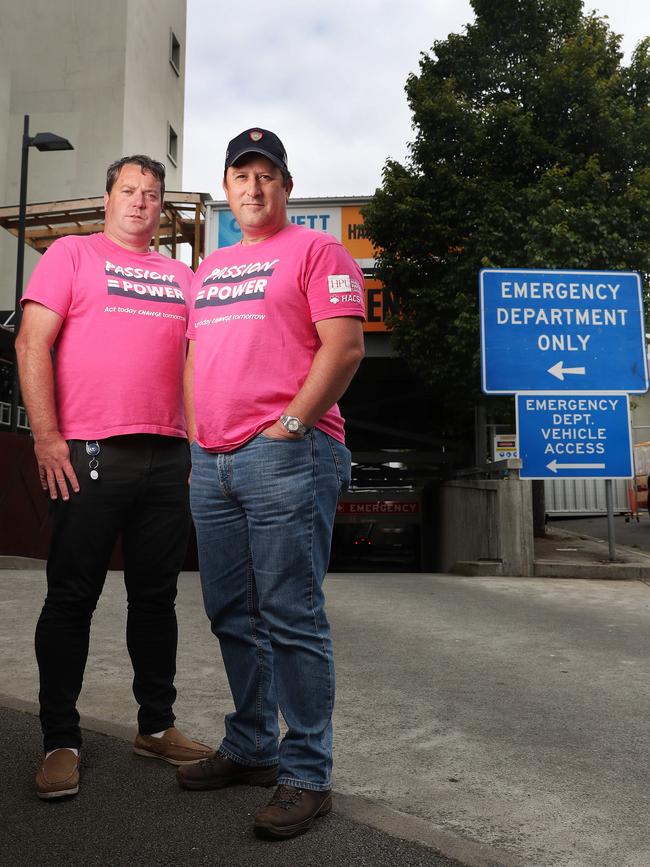
“Paramedics and Ambulance Tasmania staff need an offer from the government that actually does something about having competitive wages with the mainland and also improves conditions, including addressing fatigue issues, and ambulance ramping.”
Paramedic Cam Johnson said he and many of his colleagues had considered looking for work elsewhere.
“This is my 20th year as a paramedic, working for three different ambulance services.
“This is quite easily the worst and I’ll be honest and say that I’ve looked for work elsewhere as well.
“What breaks our hearts is that we want to come to work and work, but we get stuck here in the hospital for hours at a time, doing really not much or pseudo-nursing. We’re not nurses.”
Premier and Health Minister Jeremy Rockliff said the government remained prepared to talk with unions.
“I would encourage unions to work with the state government negotiate in good faith.
“We’ve always said that we would negotiate in good faith when it comes to wages and conditions.
“We’ve making some progress across other areas of our public sector. I welcome that progress.
“We’ve always been willing to sit down and talk about the challenges on the frontline, the importance of doing what we can and working together to improve access and flow issues so we can reduce ramping and ensuring that we support Tasmanians to get the very best of healthcare the right place and at the right time.”
‘Worst pay offer’: Allied health workers threaten strike
PARAMEDICS, hospital pharmacists and other allied health professionals are threatening to go on strike, describing their anger as “palpable” in response to an “absolutely unacceptable” state government pay offer.
While wanting to avoid negative impact on patients and care, the Health and Community Services Union says Tasmania’s health system “is on the verge of collapse”, with staffing shortages, recruitment and retention at dire levels.
HACSU industrial manager Robbie Moore said the pay offer of about three per cent in the first year of a three-year agreement - “well below inflation” and the “worst offer” given to any public sector workforce - had been rejected by 80 per cent of workers.
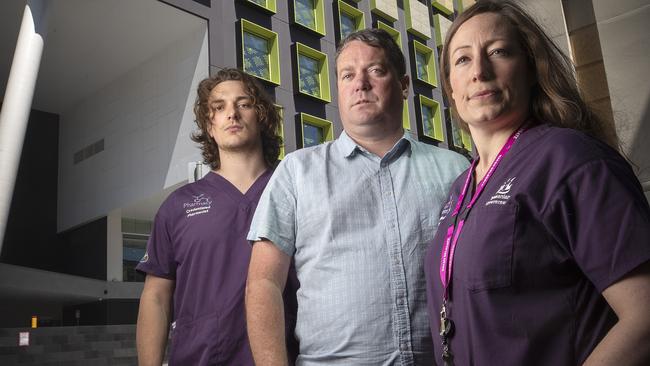
“It fails to address the key issues of recruitment and retention. We have shortages throughout all allied health professionals across the state. The government has ignored this,” he said.
“This offer is totally unfair and inadequate and it will lead to further shortages of health professionals, which will add to the health crisis we have.”
Royal Hobart Hospital pharmacists Aiden Stalker and Lauren Vanier said they were losing colleagues at high rates “because the wages on the mainland are significantly higher”.
“It’s causing us to have a real problem with the retention of staff and also the recruiting of quality staff who are experienced in specialist areas,” she said.
“We are constantly having problems filling gaps in our rostering. We don’t have enough staff to get discharges completed in a timely manner…it’s really affecting patient safety at a core level.”
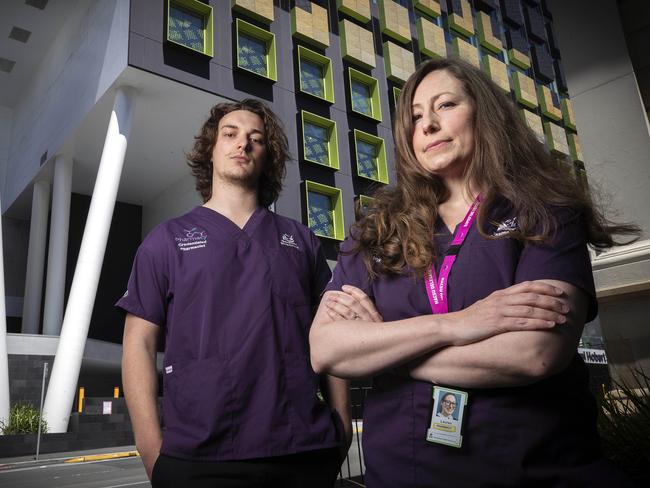
HACSU state secretary Tim Jacobson said there was “no doubt the anger was palpable” among ambulance workers at the “disrespect they continue to get from government”.
Mr Moore said allied health workers in Tasmania were among the lowest-paid in the country.
As an example, he said there were currently 30 vacancies in the physiotherapy department at the Royal Hobart Hospital that could not be filled, given the “totally disrespectful” offers on the table.
Minister Nic Street said he was concerned to hear about potential industrial action.
“I believe the wages offer that’s been put to the unions is fair and affordable. I think it deals with the inflation issues that we’re experiencing, the cost of living issues that we’re facing,” he said.
“I think the unions and their members should accept that deal and get their members a pay rise as soon as possible.”
A meeting of allied health workers will be held on Monday to discuss the possibility of industrial action and a stop-work meeting in the coming weeks.



